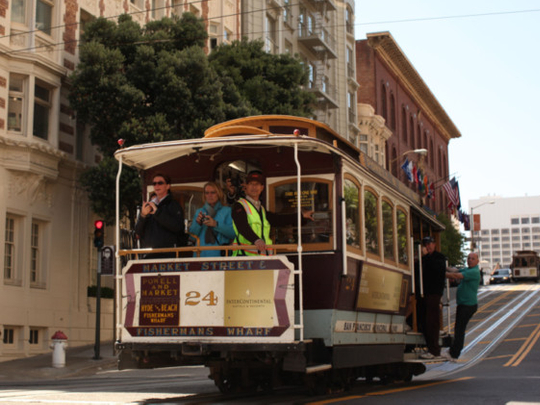
San Francisco’s famous cable cars were running again Thursday and service on light-rail trains and buses was almost at full strength, as a three-day transit driver sick-out appeared to be coming to an end.
The San Francisco Municipal Transportation Agency was operating more than 90 per cent of its normal weekday morning service, officials said. The agency known as Muni runs buses, light rail and street cars in addition to the cable cars and serves about 700,000 passengers each day.
Transit operators had called in sick in large numbers for three straight days starting Monday, reducing service and stopping the cable cars. The sick-out came after workers rejected a contract proposal that union officials said would have resulted in a pay cut.
Transit officials have said workers who reported being sick must confirm they were ill to get sick pay and could be subject to discipline up to being fired.
The city on Wednesday filed an unfair labour practice charge against the drivers’ union — Transport Workers Union Local 250-A — saying their contract forbids strikes and work stoppages.
“This is an unfortunate attempt by the union to get around a law and contract provisions they don’t like,” City Attorney Dennis Herrera said.
The union’s president, Eric Williams, said Tuesday that the labour group had nothing to do with the sick calls and urged those who called in sick to be prepared to have a doctor’s note. A message for Williams on Thursday seeking comment about the unfair labour practice charge was not immediately returned.
The contract that Muni workers rejected would have given them a raise of more than 11 per cent over two years. However, it also would have required them to cover a 7.5 per cent pension payment presently paid by the transit agency, said Rose, the agency spokesman.
The contract would have increased operator pay to $32 (Dh115) an hour, making them the second highest-paid transit workers in the country, Rose said.
Williams said other city workers were getting a better pension deal than Muni drivers.







